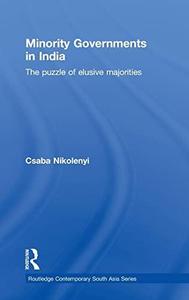
Free Download Minority Governments in India: The Puzzle of Elusive Majorities By Csaba Nikolenyi
2009 | 175 Pages | ISBN: 0415778263 | PDF | 2 MB
India's national parliamentary elections typically result in the election of majority parliaments and the formation of a single-party majority government. However, India's national party system has changed beyond recognition since the parliamentary elections of 1989. The Congress Party has lost its dominant party status; the number of political parties that contest elections, win seats in parliament and gain cabinet portfolios have increased; minority governments and cabinet instability have become regular features of parliamentary politics.This book addresses each of these aspects of party system transformation in India by applying the analytical techniques of rational and social choice theory. Challenging conventional wisdom, the book argues that the number of parties in India has increased as a result of the unexpected consequences of the constitutional amendment of 1985 that was conceived to curtail party defections. Although the Congress Party no longer dominates the new multi-party system, it still retains a pivotal role in deciding which coalitions may form viable and stable minority government. The Indian case study is theoretically driven and it is readily comparable with other parliamentary federations where minority governments are often formed, such as Canada, and the book finds that these processes are also present in the sub-national party systems of the states, however, with greater variation.
Links are Interchangeable - Single Extraction
